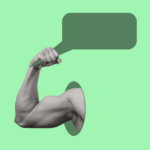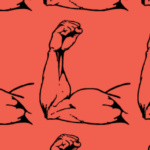Medically reviewed by
What are steroids?
Steroids are a specific group of hormones that are needed for normal body function. There are different types of steroids that act in different parts of our bodies.
The steroids that people use for enhancing their physical performance or appearance are versions of testosterone (the main sex hormone in males) and are called ‘androgenic steroids’. They are sometimes also referred to as ‘anabolic steroids’ or ‘anabolic-androgenic steroids’.
The use of testosterone for the enhancement of physical performance or appearance is different to when used as a medical treatment for testosterone deficiency.
Sometimes people refer to ‘steroids’ when using corticosteroids. This is a different type of steroid and has a different function, and can be used in treating asthma, eczema, autoimmune disease and more.
What is steroid misuse or abuse?
Steroid misuse usually involves off-label prescription of pharmaceutical products and use of normal clinical dosing, whereas steroid abuse often involves illicitly sourced products of questionable quality taken at excessively high doses and in combination with other substances.
The myth that men’s testosterone levels naturally fall with age has led to the misuse of steroids in the hope of an unproven rejuvenating effect in middle-aged and older men.
There is no evidence that steroid misuse is safe and evidence of limited benefits is only available for men aged over 65 years with health problems.
How common are steroid misuse and abuse?
Somewhere between 1% and 5% of people are believed to abuse steroids in their lifetime, with the rate about 50 times higher for males than females.
Steroid abuse begins most commonly in males aged in their early 20s, whereas misuse is most predominant in middle-aged males. A large proportion of people who misuse or abuse androgens appear to develop steroid dependence.
Subscribe to our newsletter

What are the signs of steroid abuse?
Health effects of steroid abuse
Steroid dependence
Misuse or abuse of steroids reduces the body’s own production of testosterone due to its negative feedback system. When you stop steroid misuse or abuse, it takes your body weeks to months to get back to making its own testosterone.
Steroid abusers show signs of addiction, like withdrawal, cravings and loss of control.
Psychological dependence on steroids and the effects of withdrawal (headache, tiredness, nausea, muscle pain, restlessness, poor sleep, low mood, low sex drive, body dysmorphia and suicidal thoughts) make it difficult to stop steroid abuse. The same scenario occurs with androgen misuse.
Stopping steroid misuse or abuse
Steroid dependence makes it difficult to stop misusing or abusing steroids, but stopping is necessary if you want to have children or if you develop health problems caused by abuse or misuse.
Methods described online for ‘post-cycle therapy’ or to ‘restart’ testosterone production are not proven to be safe or to work, and are not based on scientific evidence.
What to do about steroid misuse or abuse
You should visit a doctor to discuss the best way for you to stop steroid abuse or misuse.













